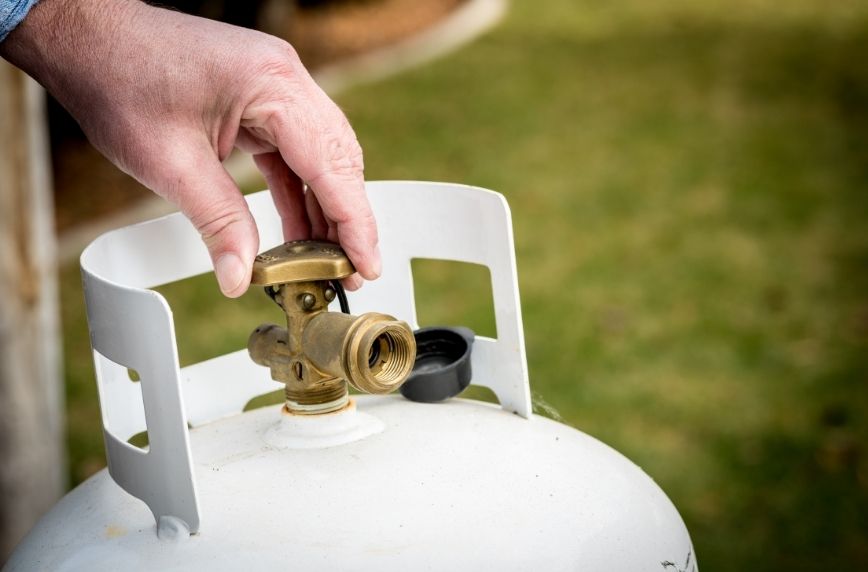Safety Tips for Using a Propane Tank at Home | Billy.com


Even though propane is very useful as an alternative to electricity, that doesn’t mean it’s flawless. Since it’s gas-based, it poses a few potential dangers. For one, you shouldn’t breathe it in. The gas isn’t toxic, but if you inhale enough of it, it can displace the oxygen in your lungs, making it much more difficult to breathe naturally. To avoid this hazard and others, be sure to read through our list of safety tips for using a propane tank at home.
Install Smoke and Carbon Monoxide Detectors
If you’re particularly worried about the first hazard we mentioned, be sure to install a proper amount of detectors. Most homes will already have smoke and carbon monoxide detectors set up in accordance with state laws. But this doesn’t apply to all houses, so you should check and ensure you have the proper detectors.
It also helps to know how to identify propane gas yourself. Most people agree that propane gas smells like rotten eggs. If you notice this smell, you need to make sure that you extinguish all open flames and turn off electronic devices. After that, get outside and call your propane provider. If it’s after hours or you think that an explosion might occur, call 911.
Have Your Tank Serviced Periodically
The best safety tip for using a propane tank at home is to avoid skipping out on routine tank checks. Professionals can detect problems before anything significant happens. If you think there’s a potential issue, set up a time for a maintenance specialist to come out and fix it right away.
Weather can also affect the propane tank. Cold weather, in particular, can prove tough on a tank, so slip in a service appointment before winter and ensure that you’re ready when the professionals get there. If the bad weather beats you to it, it’s still a good idea to get the tank checked after the storm.
Set Up a Regular Delivery Schedule
If your tank runs dry, problems can arise. If you set up a refill schedule with your propane provider, you’re much less likely to run out of gas. And keep an eye on your gas levels. Try to make sure that they never get below 20 percent capacity.
